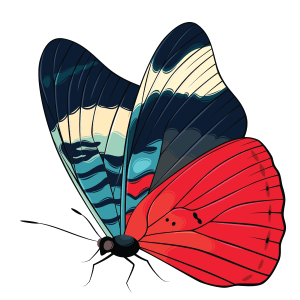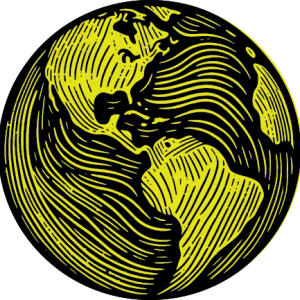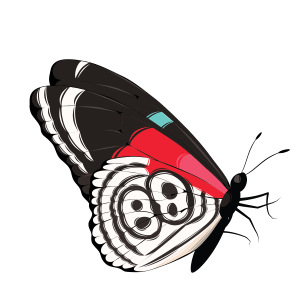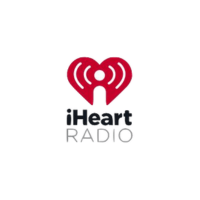October 2024
Remote Media URL
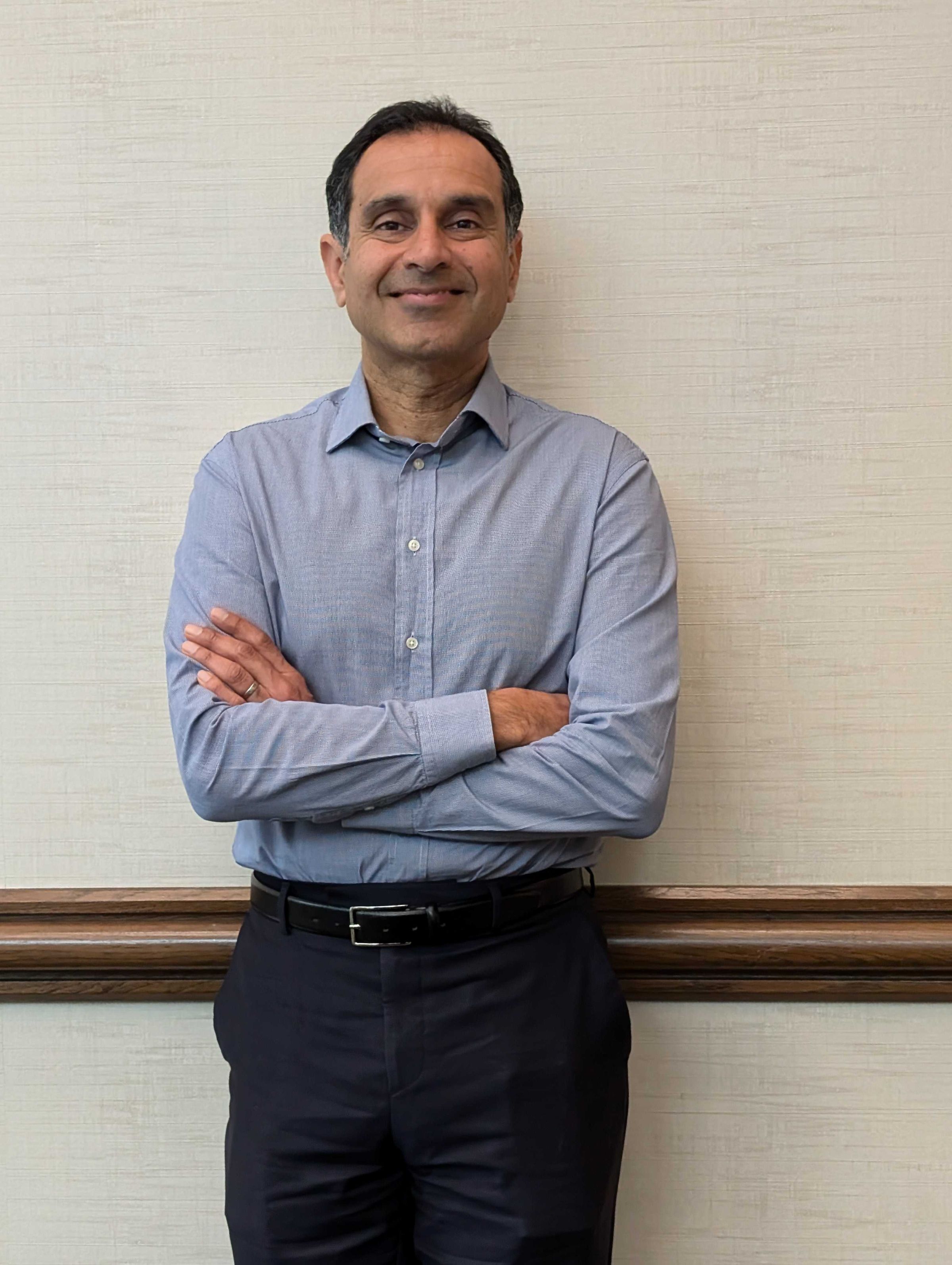
Dr. Vik Mohan speaks of his lifelong journey of stewardship, healing, listening, and community building in this episode of The World We Want: The NAAEE Podcast. Find out more about Vik's work in Madagascar, across Africa, and within, as he and host Gerry Ellis discuss what it takes for meaningful partnerships and on a personal level, the well-being that supercharges the work he and other conservation leaders pursue.
To see more of Vik's passion for well-being, conservation, and wellness both personal and planetary, watch his TEDx talk or connect on LinkedIn.
"The problems we need to solve today are not single-sector problems. They are complex, multi-dimensional problems that need systems-level solutions. You need to learn with humility what each other brings to the table to help solve this shared problem, you need you need to articulate a shared goal."
"When we're doing the work well, we are addressing all the determinants of well-being for these communities: Their livelihoods, their health, education, their security, their rights in all forms. So for me, well-being is a wonderful lens to think about working with communities like that."
Listen in on the conversation that highlights the value of integrating diverse disciplines, fostering deep, sustained community connections, and embracing a holistic view of well-being in environmental work.
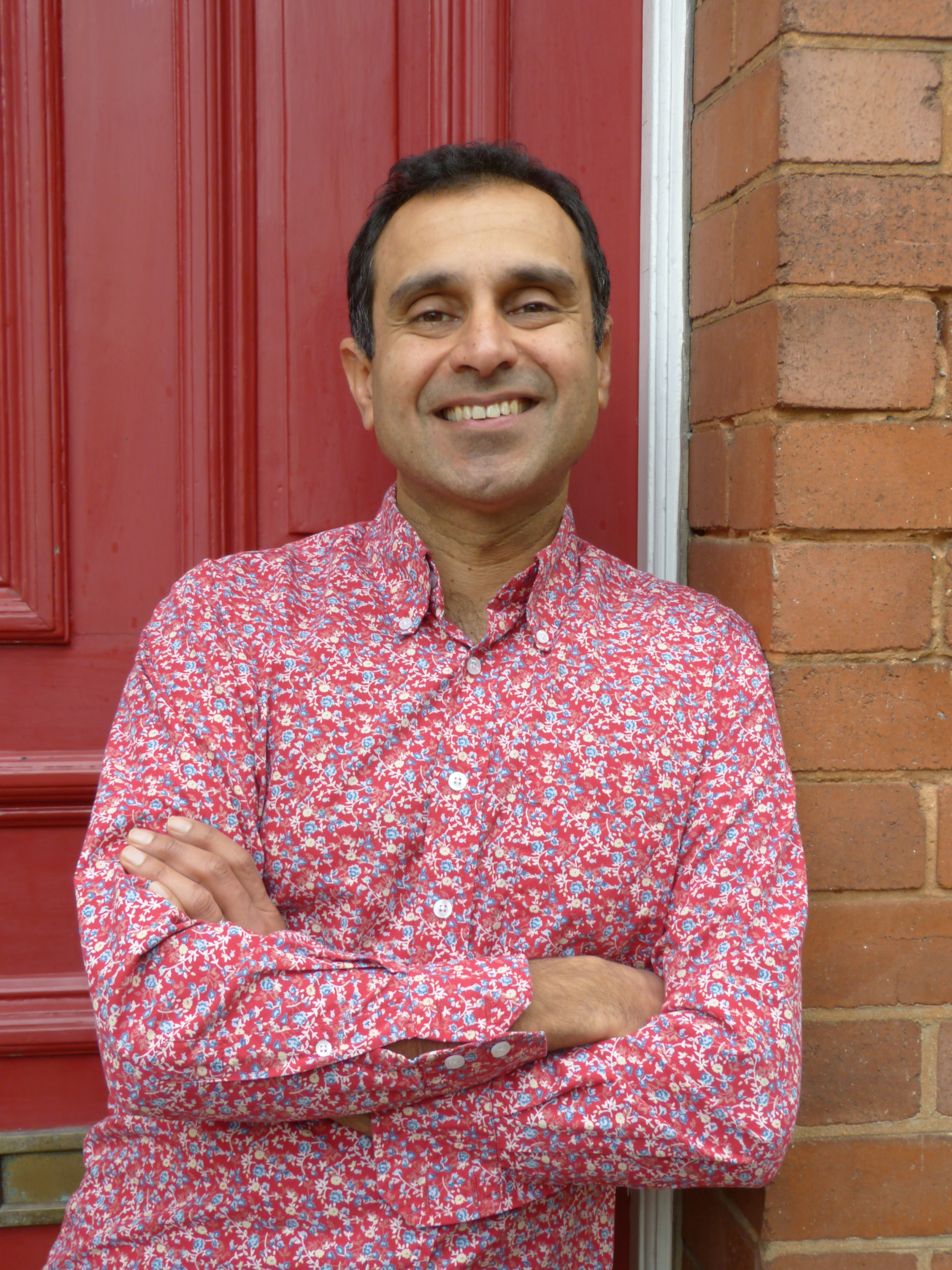
About the Guest Speaker: Dr. Vik Mohan
Dr. Vik Mohan is a practicing physician in the UK, a storyteller, a teacher and a conservationist. For twenty years he has worked to integrate health services with community based marine conservation initiatives, for the benefit of people and planet. Drawing upon his expertise as a doctor and his experience as a conservation leader he now also works to support the well-being of frontline conservationists and conservation leaders. He is a passionate advocate for rights based community conservation; the rights of communities, the rights of nature and the rights of conservationists.
Transcript
00;00;00;00 - 00;00;45;24
Gerry Ellis, Host
Welcome to The World We Want. Hi. I'm your host, Gerry Ellis. So, what is the world you want? Like many of you, I think a lot about the world. I want a caring world. One of equity, sustainability, peace, social justice, freedom, health, happiness. All of that is a world I want. On The World We Want podcast, we talk to some of the great thinkers, creators, educators and conservationists, as well as some of the newest voices driving change around the world.
00;00;45;26 - 00;01;12;07
Gerry Ellis, Host
Our conversations are about the world they want and how they are working to build the world we all want. And what do they share in common? Environment education. One of the most powerful tools for creating a more just and sustainable world. It inspires, it enlightens, it influences attitudes, and most importantly, it drives us to become better guardians of the planet, caretakers of our community.
00;01;12;15 - 00;01;18;02
Gerry Ellis, Host
It leads us to action.
00;01;18;05 - 00;01;45;23
Gerry Ellis, Host
On this episode, we explore what at first might seem like strange bedfellows: personal well-being and global conservation. Intuitively, we know we are all connected to the environment, but as we cruise through the details of our daily lives, that connection can often seem distant, even irrelevant. But our next guest believes that that connection is supercharged by our own well-being.
00;01;45;25 - 00;02;24;28
Gerry Ellis, Host
Joining me on The World We Want is Dr. Vik Mohan, a storyteller, teacher, conservationist and a practicing physician in the UK. For more than 20 years, he's worked to integrate health services with community based marine conservation initiatives for the benefit of both people and the planet. Drawing upon his unique combination as a doctor and a conservation leader, Vik is a passionate advocate for the rights of communities, nature and those protecting both. Vik sees personal well-being as the heartbeat of the global conservation effort.
00;02;25;01 - 00;02;36;16
Gerry Ellis, Host
I'd like to welcome to The World We Want, Dr. Vik Mohan. Hi, Vik, and welcome to The World We Want. I'm super excited to have you on. Thank you for doing this.
00;02;36;19 - 00;02;40;01
Vik Mohan
Oh, Gerry. Thank you very much. It's lovely to, lovely to be here. I'm excited about this.
00;02;40;04 - 00;03;03;05
Gerry Ellis, Host
I wanted to start with something that I was watching in kind of getting to know you a little bit better, I was watching a TEDx that you did, and in the very beginning of that TEDx, you referred to a 19th century doctor, Sir William Osler, and he has famous saying of, “if you listen to your patients, they will tell you their diagnosis.”
00;03;03;07 - 00;03;28;13
Gerry Ellis, Host
I absolutely love that line. I'm going to steal it and keep it. I think it's brilliant because I think, I think we could apply that to everything in life. What a perfect launchpad for any kind of education that we get as human beings. It's just to listen. Tell me how that concept connects to your life and launched the way you think and the things that you do.
00;03;28;15 - 00;04;04;22
Vik Mohan
Yeah, well, wow, a wonderful thing to start with, Gerry. And yes. So, you know, training to be a doctor, I mean, the importance of listening to your patient was instilled in us from the very beginning. But so much else of what I've done, the importance of listening has been—I’ve been reminded that importance. So I also train as a life coach and the importance of listening came up again in my in my coaching training and in all of my work, working 1 to 1 with people, whether it's is a doctor or a coach or an educator,
00;04;04;24 - 00;04;25;10
Vik Mohan
I've been reminded constantly of the importance of listening. And as you'll find out by the end of this podcast, Gerry, I do like to talk, but if I can just keep quiet for just a little bit, sometimes and really remember to really listen and really deeply listen, I'm always amazed by what comes up. And, you talk about Madagascar.
00;04;25;10 - 00;04;46;13
Vik Mohan
So when I first went to Madagascar in 2005, I went out there as a medical officer looking after the health of the conservation expedition team. And actually, I saw that the team were pretty healthy. And I became interested in the health of the communities. And so the most powerful tool I had at my disposal was listening.
00;04;46;18 - 00;05;07;10
Vik Mohan
What we found is when we just took the time to listen, when we had the courage to really listen rather than going to committees with our own agenda or preconceived ideas about solutions. When we really took the time to listen without an agenda, we were amazed by what we heard and deeply, deeply touched by what we heard.
00;05;07;10 - 00;05;13;10
Vik Mohan
And the rest of my life has been about, well, so much of the last 20 years has been about responding to what we heard.
00;05;13;12 - 00;05;38;29
Gerry Ellis, Host
Now that you brought up Madagascar, let's dive into that just a bit, because I have some experience with where you were in Madagascar. And it’s—Madagascar is such an amazing place to start with, but that particular section of coast is even more stunning, I think, than some places, because it's so stark and you have, well you describe it.
00;05;39;00 - 00;05;47;19
Gerry Ellis, Host
It's physically and describe the people there for a second, because I think it's important to a couple of things I want to I wanted to chat with you about.
00;05;47;19 - 00;06;11;01
Vik Mohan
So the people who live on the southwest coast of Madagascar, the people, the communities that we partnered with or Blue Ventures continue to partner with are the Vezo, the“people of the sea”. Or another definition for Vezo is “to struggle with the sea.” So these are communities who whose identity is inextricably linked with the ocean.
00;06;11;03 - 00;06;38;06
Vik Mohan
If they don't fish, they don't eat. Inland, it's incredibly dry, you know, semi-desert. So agriculture is simply not possible in large part of southwest Madagascar. So they rely on fishing for food, for income and for cultural identity. And these are highly skilled, highly skilled sailors and fishers who fish to live sustainably for hundreds of years.
00;06;38;08 - 00;07;03;21
Gerry Ellis, Host
Well, yeah. And that's what I think is so fascinating about the place that you ended up, because it is so, it's so alien. The landscape they live on is these dunes. And it's, I think, as a human being, you look out across this vast ocean in front of them and it seems empty. You look back on the landscape that they're living on, and it seems almost empty of these white dunes.
00;07;03;23 - 00;07;41;09
Gerry Ellis, Host
And so they live in this land that certainly has fish, but it seems like a perpetual desert in front and behind them. It's so alien to the world. You came from. You arrive at a place like that. How do you shift the lens in which you see the world through? Because their world looks nothing like ours, but yet they're human beings just like we are, and to see that and make that connection to them and begin to understand their concerns, their well-being,
00;07;41;12 - 00;07;43;01
Gerry Ellis, Host
What was that like?
00;07;43;04 - 00;08;15;20
Vik Mohan
Oh, that's such a good question, Gerry. I guess it comes down to seeing beyond the geography and connecting to them as people. And because we were working alongside them on the task of rebuilding fisheries, helping them to restore ocean life. Because you were working alongside them and living alongside them, it became, you know, seeing beyond the huge difference in geography, became a little bit easier, I guess.
00;08;15;22 - 00;08;43;01
Vik Mohan
And we could see—we could see them as communities. We could connect with them as fellow humans, I guess. And I suppose being a doctor, you know, always having an interest in health, health needs, how those are met. And so in some way I had that lens when I arrived there and I was thinking, so where the healthcare infrastructure?
00;08;43;03 - 00;09;05;17
Vik Mohan
Where do the children go for vaccination? Where does health education get delivered? You know, how do they get to a health care facility? And so I had to a degree, I had a bit of that lens, that I was carrying when I arrived there as, as the kind of medic in the team and, and it that lens really, really shaped how I approach that community.
00;09;05;24 - 00;09;37;15
Gerry Ellis, Host
So how did you approach it? I think this is the reason I'm asking the question is because I'm personally fascinated by how to work with other communities, how to work with other people who are so, so often seem so vastly different than I am. And yet, or we as an organization are, and so you go in there and it's so easy to be overwhelmed by the difference.
00;09;37;17 - 00;09;38;03
Vik Mohan
Yeah.
00;09;38;03 - 00;09;58;23
Gerry Ellis, Host
And yet you've got to connect. Ultimately you've got to connect with the sameness. Those things we all care so deeply about, you know, the health of our children, our own, you know, our own health, our welfare, the people in our communities. So what are you what are your first steps in doing that? Or what did you learn in those first steps?
00;09;58;23 - 00;10;24;25
Vik Mohan
Yeah. So the first thing to say is it takes time. You know, there's some things you just cannot shortcut because ultimately what you want to do is build trust and build understanding. And I think those things take time. So I was lucky that I was joining a team, an organization that had been in that area for a while and had begun to build the trust that the communities that we working with.
00;10;24;28 - 00;10;54;03
Vik Mohan
So that made it easier. I also benefited from having people in in the community, in the team who were multilingual. So language wasn't too much of a barrier. And then it's then it's just about getting alongside people and sharing your, you know, sharing your humanity, sharing something of your own life. Sharing my own stories about what my life is like at home, what my challenges were, just sharing photographs of my friends and family.
00;10;54;05 - 00;11;26;08
Vik Mohan
Sharing experiences of life at home. I think it's come comes down to just being a human and really, really resolutely being a human and believing that ultimately we're all the same, you know? You know that belief that we're all the same really, for me, was that kind of, in a way, a kind of guiding principle and, and a humility and a curiosity, you know.
00;11;26;08 - 00;11;41;16
Vik Mohan
“Wow, how do you how do you eke out a living in this space that looks like a desert?” How do you, you know, how do you go fishing on a pirogue. You do that in an incredibly skilled way. But these pirogues haven't changed in their design for hundreds of years. How do you go fishing, you know?
00;11;41;16 - 00;12;02;16
Vik Mohan
So it was it was curiosity. It was humility. It was recognizing common humanity. It was piggybacking on the back of an organization that was already building trust and understanding, and recognizing the privilege of being able to do those things. And, you know, making the most of the opportunity.
00;12;02;18 - 00;12;27;05
Gerry Ellis, Host
It's interesting you should mention kind because another guest we had on the World, We want you it was Jaime González, who you may know, but if not, I'm sure you'll meet, at the, conference coming up here in the not too distant future. And one of the things he said was that that he goes into any community.
00;12;27;05 - 00;12;58;09
Gerry Ellis, Host
And the first thing he establishes with them is, I'm going to be here. I'm going to be here for time. Whether or not the the project that we're doing will be here two years from now. I will be here. I will continue to come back to you and building trust through that commitment of time. And I think, what my experience in, you know, in the world, in working on film projects and other things is communities are shocked when you come back to them when you, you do invest the time.
00;12;58;09 - 00;13;35;07
Gerry Ellis, Host
They're so used to people disappearing on them that so yeah. Especially outsiders coming in, spending some money doing a project and disappearing. And I just I'm thinking about the people who are listening to this podcast. So many of them are educators, who work in whether it's local communities or extended communities internationally, is learning how to approach that with the understanding of patience and time that it takes to get to know other people.
00;13;35;09 - 00;14;04;09
Vik Mohan
Yeah. And and exactly. And when people make an effort to get to know you, it's a leap of faith. And they're enduring investing in you and and to say, right, thanks so much. I've got everything I need. I'm off now, you know. You know, that's that's just and it's a it's like a betrayal really. And so and so this idea of invest, you know, I love what you just shared about about about that practitioner that you go into an area and say, I'm here, I'm here to stay.
00;14;04;12 - 00;14;23;18
Vik Mohan
And, and in some ways engaging in health services, which is what I ended up doing in Madagascar. There's an implicit, commitment because as a doctor, you know, I would not go in, provide health care for a short period of time and saying, oh, yes, I'm terribly sorry. My money's run out or my priorities have changed. I'm going now.
00;14;23;18 - 00;14;38;22
Vik Mohan
That is so unethical, deeply unethical. And so I so I completely agree that that I'm making a commitment to, to a place, to a community is really, really important. If you if you want to engage meaningfully with that.
00;14;38;27 - 00;14;47;16
Gerry Ellis, Host
One word that's so applicable here and that you use, a lot is well-being, tell me what that means to you.
00;14;47;18 - 00;15;07;29
Vik Mohan
You know, Gerry, I work a lot in the, in wellbeing, and I find it really difficult thing to do to define, you know, and everyone defines it slightly differently. I mean, for me, I think I talk about being healthy and happy. I talk about thriving. And I find it more I find it difficult to pin down any further than that, if I'm honest.
00;15;07;29 - 00;15;33;04
Vik Mohan
I'm trying to come up with a definition, but for me, well-being is I know I'm doing okay, I'm doing okay, I'm doing well. And intrinsically, even if we can't come up with the definition, we can say if we're doing okay. We can say, yeah, you know what, my well-being's okay, I'm doing okay. And that increasingly needs to become a focus of my work.
00;15;33;04 - 00;15;58;14
Gerry Ellis, Host
The reason I ask that is because in again doing some of the research before, you know, we had a chance to talk. That word continually came up in and around you and I started and it made me start thinking about the projects that I've worked on and, that we are currently working on and the well-being and what that means.
00;15;58;14 - 00;16;20;00
Gerry Ellis, Host
And that was exactly it. I could never lock down. I'm stumbling right now because I can't lock down on it. I couldn't lock down on a definition. Every time I moved from one group that we work with to another group we worked with, the well-being seemed to travel in its own way to that group.
00;16;20;02 - 00;16;39;27
Gerry Ellis, Host
Maybe we could back up to those folks on the coast of Madagascar and let's talk about well-being, what it meant to them. And then maybe you can share a couple of other places that you have worked and are working. I think it has a lot to do with this whole concept of our podcast, which is the world we want.
00;16;39;29 - 00;17;16;18
Vik Mohan
So the kind of model, the vision we had for communities in on the south west coast of Madagascar was Thriving Fishes, Thriving Oceans. And for me, thriving and wellbeing are inextricably linked. And for me, that's about security, experiencing abundance, you know, having security of livelihoods, going fishing, knowing that you can rely on the fact that you will better feed your family, knowing that you can rely on the fact you able to do that tomorrow as well.
00;17;16;21 - 00;17;43;18
Vik Mohan
So for me, that supports thriving and wellbeing, that security, that sense of abundance. Knowing that your family will enjoy good health, knowing that your children will experience a good education. All of those things feed into the wellbeing of those communities. So it relates to, you know, food security, financial security, health and wellbeing, education of your children.
00;17;43;18 - 00;18;09;25
Vik Mohan
It's really multi-dimensional. And I think when we're doing the work well, we are addressing all the determinants of wellbeing for those communities: Their livelihoods, their health, education, their security, their rights in all forms. So for me, wellbeing is a wonderful lens to think about working with communities like that.
00;18;12;28 - 00;18;42;00
Carrie Albright
Hi everyone. I'm Carrie Albright from NAAEE. That was our host, Gerry Ellis, speaking with Dr Vik Mohan about his experience in fostering mental, physical and environmental health in communities around the world. This podcast is all about highlighting the changemakers, like Vik, who are using education to help create a more just and sustainable future for us all. The World We Want is a project of the North American Association for Environmental Education.
00;18;42;03 - 00;19;17;12
Carrie Albright
You can learn more about our mission on our website at N-A-A-E-E dot O-R-G. We'd also love for you to connect with us on social media. You can find us on Facebook, Instagram, LinkedIn, and YouTube. And if you're enjoying what you're hearing, please consider adding a rating, a review, or subscribing wherever you listen to your favorite podcast. Now back to Gerry and Vik to hear more about how well-being is at the epicenter of impactful work in conservation, education and beyond.
00;19;17;15 - 00;19;40;07
Gerry Ellis, Host
The women really are the heart and soul of these communities. It's very easy, I think, as, you know, we're both males. We walk into a community filled with males, and then they get in the boat to leave. And now we're standing there with all these women and children who are the heart and soul of this community.
00;19;40;10 - 00;19;50;20
Gerry Ellis, Host
Does well-being shift in your eyes when we talk about the men in the community and the women in the community and their roles?
00;19;50;23 - 00;20;20;23
Vik Mohan
Yeah, I think that comes down to needs and how their needs manifest, and which needs are most salient. So, for example, thinking about those communities in Madagascar, again, when we worked with men, their most salient need would address their well-being. Most was livelihoods—ensuring that there's enough fish in the ocean or enough natural resources for them to better fish and thrive.
00;20;20;25 - 00;20;48;21
Vik Mohan
What we saw with the women in the community was that they really had poor access to health care and reproductive health services in particular. And poor reproductive health was really, really impacting their well-being dramatically and impacting their ability to engage in society more broadly. So for the women, if we were serious about well-being, we had to start with reproductive health as the foundation.
00;20;48;23 - 00;20;54;03
Gerry Ellis, Host
Is have you seen that replicated itself in other places you've worked?
00;20;54;05 - 00;21;17;14
Vik Mohan
Yes, very much so. Throughout the west coast of Madagascar, when we've worked with fishing communities, the unmet need for reproductive health services have come up to women again and again. On the east coast of Africa, when we've worked with partner organizations who've worked to replicate our models, they've also come across a huge unmet need for reproductive health services.
00;21;17;17 - 00;21;32;27
Vik Mohan
And addressing those is often transformational. It improves the health of women, enables them to women, women to better engage and in fisheries management. And it helps build community trust for the work that we're doing.
00;21;33;00 - 00;21;54;05
Gerry Ellis, Host
We’re back to that word again: trust. Yeah, that that one seems like the hardest one is building trust in these in communities that you work with. Not you specifically, but just, you know, somebody coming from the outside is establishing that bond of trust.
00;21;54;13 - 00;22;06;03
Vik Mohan
Yeah. And particularly if they have experience of people coming and going, you know, how will you trust in those situations if that's what you've experienced? Why would you?
00;22;06;05 - 00;22;35;09
Gerry Ellis, Host
How do we—how did you in in in the case in Madagascar—but in just in general, I guess, how do you move how do you connect that to conservation for people? I mean, obviously in your mind that that probably seems somewhat seamless at this point, you know, that well-being health care and conservation, but I can see a lot of people might be saying, “Well, wait a second,
00;22;35;12 - 00;22;40;22
Gerry Ellis, Host
You know, I'm trying to save the species over here. How does that connect to what you're doing over here?”
00;22;40;22 - 00;22;41;24
Vik Mohan
Yeah, yeah, yeah.
00;22;42;01 - 00;22;43;26
Gerry Ellis, Host
How do you, how does that work?
00;22;43;28 - 00;23;12;25
Vik Mohan
So when I've worked with communities, and have spent time with communities, you know, who are the front line of climate change, biodiversity loss, they see these things as very much interconnected. So the barriers to addressing these things in a holistic, multisectoral way are often our own. You know, we may have constraints that—okay, I've got resources, I've got money to do biodiversity conservation and I've got to focus on that.
00;23;12;28 - 00;23;40;20
Vik Mohan
I've got money to do health care. I've got to focus on that. When you ask communities, they don't see these things in silos at all and they can actually immediately and they can articulate things really compellingly and powerfully, because that's the lived experience. So it comes back to listening. It comes back to listening. You know, communities tell us how these things are interconnected. The communities, you know, women tell us that as a result of improvements in health, they are better able to engage in fisheries management.
00;23;40;22 - 00;23;50;10
Vik Mohan
They're better able to engage in, you know, in sustainable fisheries, for example. So they tell us these things.
00;23;50;12 - 00;24;20;13
Gerry Ellis, Host
How much, I'm curious, how much resistance you have found in others? Organizations, just individuals to try to convey that concept. Because it does seem—my own lived experience with working in those communities. It is seamless. They don't see it as a separate concept, and in fact, you know, in many cases, I've found that they don't have even words for things like the environment or nature.
00;24;20;18 - 00;24;41;21
Gerry Ellis, Host
It is them. They, you know, they finally they, they almost mentally stumble when you try to get them to, to see the environment as something separate. When you say, well, you know, we're trying to save that nature over there and they go, what? That is us lik, I don't understand what you're talking about over there.
00;24;41;24 - 00;25;16;19
Gerry Ellis, Host
But the flip side of that is that you come back and talk to, you know, board of directors or CEOs or someone in organizations where you're trying to do the work, and they immediately put them in silos. How do you find that, like the reverse transition, not going there but actually coming back and trying to explain the importance and value of health care education and wellbeing’s role in conservation.
00;25;16;19 - 00;25;48;17
Vik Mohan
So, unfortunately I find that pretty hard. When I get the opportunity to share my lived experience of spending time with these communities, share some of their stories, I elevate the communities and stories and experiences, then people say, “Oh, wow, I could see it really clearly, now you've articulated it really clearly.” So when I get a chance to share stories that that tell the story of working across sectors in a holistic way, then people really, really buy into the idea.
00;25;48;20 - 00;26;16;20
Vik Mohan
But I find that organizations are often very constrained and they may have a very, very narrow, model for what it is they're allowed to do. And narrow set of capabilities for what they're able to do, or funding streams that restrict what they're allowed to do. And I see that time and again, whether I speak to donors, I speak to implementation organization, or I speak to policymakers that we're struggling to get out of our silos.
00;26;16;22 - 00;26;28;28
Vik Mohan
And yet the problems we need to solve today are not single sector problems. They are complex, multi-dimensional problems that need systems-level solutions.
00;26;29;00 - 00;27;00;22
Gerry Ellis, Host
I wonder if one approach to solving that is that is bringing together a few silos and then building doorways to those silos so each other has a chance to wander in and out of those silos. I just, I share your thoughts on that and I constantly thinking about how do we how do we connect silos to the point where they become seamless.
00;27;00;22 - 00;27;04;29
Gerry Ellis, Host
And wall-less and I, you know..
00;27;05;01 - 00;27;35;27
Vik Mohan
Yeah, yeah, yeah. I mean, and this is something I've spent an awful lot of time pondering myself, Gerry and I think some of the answer is around, uniting around a shared vision and having the courage to understand that however good you are at your particular piece of the problem, solving the problem, and honestly solving the problem, is going to take more than one sector to solve.
00;27;35;29 - 00;27;56;01
Vik Mohan
So it's about having honest conversations within those silos and between those silos and saying, let's build a shared vision. It's about not being—I think some of the fear I have experienced has come as a result of people thinking, “Oh my goodness, that means I've got to learn how to do something else as well.”
00;27;56;03 - 00;28;22;17
Vik Mohan
And my response to that is, no, you don't need to learn how to be a conservationist if you're a clinician, we don't have to learn how to provide health care. If you are conservationist, you just need to learn how to collaborate skillfully and effectively. You need to learn what you need to learn with humility, what each other brings to the table to help solve this shared problem, you need you need to articulate a shared goal.
00;28;22;19 - 00;28;24;04
Gerry Ellis, Host
Yeah, yeah.
00;28;24;05 - 00;28;27;20
Vik Mohan
And I think I think that's part of the solution.
00;28;27;22 - 00;28;48;13
Gerry Ellis, Host
I guess along those lines, I wanted to ask you about a quote that I read where you said, and I'm going to just check on it to make sure I get it right. You said “Women are telling us, that well-being is a hidden topic, something that is holding them back from doing their work.”
00;28;48;15 - 00;29;23;08
Gerry Ellis, Host
And I see women is such a instrumental piece of this tearing silos down. I think women are much more, they have a much greater proclivity towards connecting and working as a unit then I ever found men to be. And so just tell me that, explain that quote to me. Women are telling us that their well-being is a hidden topic, first of all, what that means and then how it's holding them back from getting the work done.
00;29;23;11 - 00;29;50;25
Vik Mohan
Thank you, Gerry. So that takes us in a slightly different direction here. So the women I was talking about in that quote were not community members per se. These are these are women working as leaders in conservation. And this is a this was a co cohort of well this is a cohort of all female grassroots conservation leaders from all over Southeast Asia.
00;29;50;27 - 00;30;26;06
Vik Mohan
And I've had the privilege of working with them on a leadership development program and centering well-being as part of that leadership development. And what we found was that when we spoke to these inspiring, passionate, driven women about well-being, so often they what I heard back was, I've never had the opportunity to consider my own well-being before. I've never really given permission to talk about well-being, about my own well-being.
00;30;26;06 - 00;30;47;15
Vik Mohan
I want to give permission to consider my own well-being. These are, I mean, I'm generalizing hugely. So please, everybody listening, forgive this. Forgive me for this. But so often we were seeing that these women were, you know, the message they were internalizing was that they were there to serve. They were there to serve others. They were there to set their communities.
00;30;47;15 - 00;31;20;03
Vik Mohan
They were there to serve the mission. And this was layered on top of the narrative that we see in conservation that you need to die for the cause anyway. So we already see that in conservation that people can live a life of self-sacrifice in order to serve a mission that's bigger than them. And if you layer on top of that, the conditioning about, you know, that women are receiving that actually their needs aren't as important as the needs of their community, aren't as important as the needs of them or of their organization.
00;31;20;06 - 00;31;41;07
Vik Mohan
Then talking to them about their well-being, was completely new for some of them and actually was really unsettling for some of them. But when we dug deeper, actually, we could see that they were some of them were burning out, some of them were really struggling, and they were keeping going with the work as best they possibly could.
00;31;41;07 - 00;31;53;00
Vik Mohan
But I saw how if we could support them to really thrive, then they would thrive and their work would benefit. So that's what I was referring to in that quote.
00;31;53;02 - 00;32;16;09
Gerry Ellis, Host
Wow. No, no, I'm so glad I asked you because that raises so, so many questions in my brain. I wonder how much we need to have a wellbeing course that is applied to all nonprofit organizations, because you're absolutely right. It's there is this mindset of sacrifice it all. Yes. Don't get paid as much. You're here for the cause.
00;32;16;12 - 00;32;22;21
Gerry Ellis, Host
Your individuality isn't as important as you know the mission. And I you do see burnout.
00;32;22;24 - 00;32;44;06
Vik Mohan
I'm, you know, having been in the sector 20 years, I've sadly seen quite a lot of it, really sad. And, you know, you know, I want to help create a world where to the people who are doing the work are as important as the work itself. You know that we value ourselves as much as we value the mission.
00;32;44;09 - 00;33;10;04
Vik Mohan
I would love to see that happen and decided that you know, dying for the cause, falling on your sword ultimately doesn't serve the mission. And as a doctor, you know, first do no harm. So if you are working in a way that is harming you, then as doctor, my belief is that's unethical practice. Yeah. And actually you matter as a conservationist, as a mission driven organization and individual.
00;33;10;07 - 00;33;36;02
Vik Mohan
And that's what I'd like to be doing more of. And when you add into that makes the fact this huge gender inequality in conservation and huge challenges for women in certain parts of the world because of gender norms, then you've got so much more work to do and so much more opportunity to right some of those wrongs.
00;33;36;04 - 00;33;44;29
Vik Mohan
And what we see, sorry, one last point on that is that what we know is that when women are empowered to lead, communities flourish. We know this, I’m just echoing what you said earlier, Gerry.
00;33;44;29 - 00;34;03;00
Gerry Ellis, Host
I think you sort of answered the world to what, you know, right there. Just that, you know, I love to end this podcast always with “Well, tell us the world you want and how that is the world we all should want,” and I think you hit on that line right in that last statement. So I want to end this a little bit differently. You said you were a standup comedian.
00;34;03;02 - 00;34;05;19
Gerry Ellis, Host
How is—how tell me about that
00;34;05;19 - 00;34;06;24
Vik Mohan
I was.
00;34;06;24 - 00;34;34;19
Gerry Ellis, Host
Was well, maybe you still are I don't know, but finish us off with how humor. Because I was thinking about when you were describing well-being and connecting with the communities in southern Madagascar. And I was thinking about how much humor crosses ethnic boundaries and racial boundaries and all that. I've walked into communities, and you can pantomime things and everybody starts to laugh.
00;34;34;19 - 00;34;46;13
Gerry Ellis, Host
Everybody, you know, connects. How do you see humor as a comedian and as a doctor? How do you see humor as part of well-being?
00;34;46;16 - 00;35;12;12
Vik Mohan
As part of well-being? Wow. So, I mean, there are probably fewer quick fixes for well-being then a good laugh right? There are, you know, and we've known that since time immemorial. There are fewer quick fixes for easing tension than a good belly laugh. You know, Shakespeare referred to it as “comic relief.” So. So we know that, I mean, and, you know, laughter is the best medicine.
00;35;12;12 - 00;35;40;23
Vik Mohan
So we've known that from time immemorial. The power of a laugh, the power of humor, the power to ease tension, to help reframe, to help give perspective, to change our emotional state. I mean, humor does so many things and building on that, what you've alluded to there, Gerry humor can build bridges, yeah? And I've felt that when I've gone into communities that I haven't known,
00;35;40;25 - 00;36;03;08
Vik Mohan
And if we can reach a point where we're both laughing, I think we've got it. We've connected at some level, human to human. We've transcended all of these barriers that were staring me in the face ten minutes ago and we connect. So I think, I mean, and I do use that occasionally. And in the consulting room, I'm very nervous about using humor because you do it badly,
00;36;03;11 - 00;36;24;12
Vik Mohan
You know, it doesn't—you know, patients don't take kindly to that. But occasionally I use humor in the consulting room as well. And if I do it, if I get it right, then it eases tension. It builds connection. It helps to foster trust. It's just wonderful. I love it, I love it.
00;36;24;14 - 00;36;46;09
Gerry Ellis, Host
Vik, I have totally loved this. This has been awesome. Thank you so much for taking the time to talk about all this stuff. And it's really such important stuff. But to end it on a smile is which, you know, I know our audience can't quite see, but, maybe we can, maybe we can get Demelza or Carrie, one of the producers, to grab a screenshot right now.
00;36;46;09 - 00;36;57;05
Gerry Ellis, Host
We'll throw that up in, on, the blog or things that accompany this. But thank you so much for doing this. So much of what you talked about is the world we want. That connection.
00;36;57;07 - 00;37;22;08
Vik Mohan
Thank you, Gerry. I couldn't agree more. I couldn't agree more. And that connection, not just between people, but, you know, across all kinds of boundaries, whether it's human to human, human to animal, whatever it is, you know, ultimately we're all connected thanks to.
00;37;22;11 - 00;38;00;03
Gerry Ellis, Host
Special thanks to Dr. Vik Mohan, storyteller, teacher, conservationist and physician dedicated to a world with wellbeing at its heart. To learn more about Vik and about The World We Want, visit our website at naaee.org/podcast that's N-A-A-E-E dog O-R-G slash podcast. As you just heard, environmental education is as multifaceted as the diversity of guests on our podcast. To explore every element, subscribe to The World We Want podcast.
00;38;00;06 - 00;38;20;27
Gerry Ellis, Host
There's a link on our website, or you can find us wherever you listen to your favorite podcast. We would love to hear what you think. And if there's an aspect of environmental education you want to know more about, let us know. Email us at podcast@naaee.org.
00;38;21;00 - 00;38;54;03
Gerry Ellis, Host
The World We Want podcast is a production of NAAEE, the North American Association for Environmental Education. I'd like to send a special thanks to our entire team Carrie Albright, Judy Braus, Jimena Cuenca, and Stacie Pierpoint with additional production support from GLOBIO. You can learn more about GLOBIO at globio.org. And a special thanks to you for being a part of the world we want. A better world starts with each of us together.
00;38;54;05 - 00;39;02;21
Gerry Ellis, Host
I'm Gerry Ellis. For everyone at The World We Want. Thanks for listening and thanks for sharing The World We Want: The NAAEE Podcast.
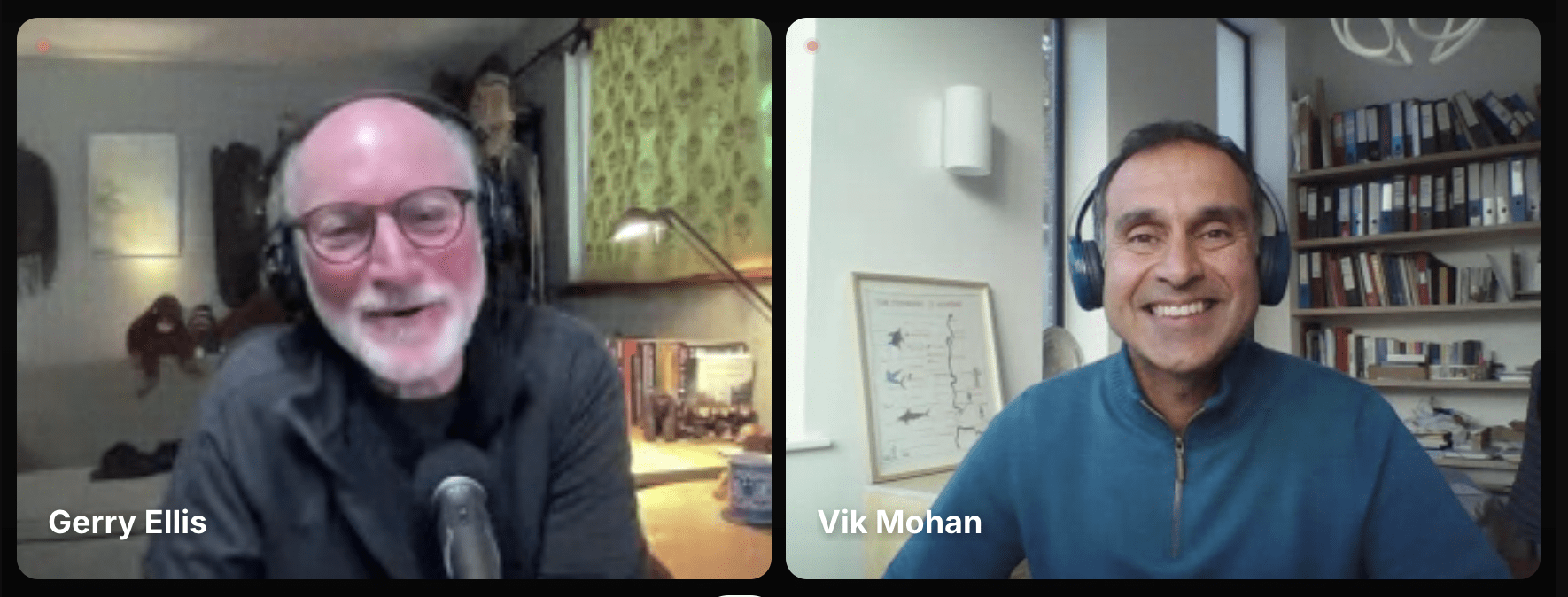
Listen to More Episodes of The World We Want: The NAAEE Podcast
Image
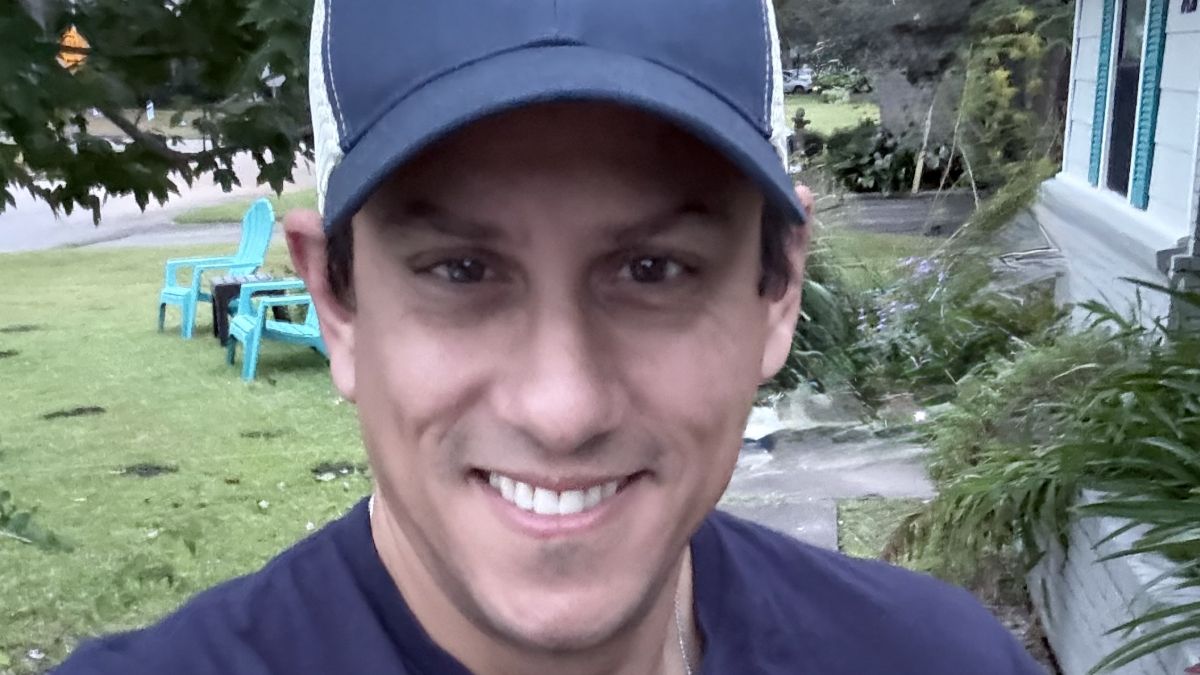
Conservation Education in an Urban Landscape with Jaime González | S1 Ep 1
Listen to Jaime talk about the importance of conservation in urban environmental, of belonging in the conservation field, and nurturing the "science of awe" in all of us.
Image
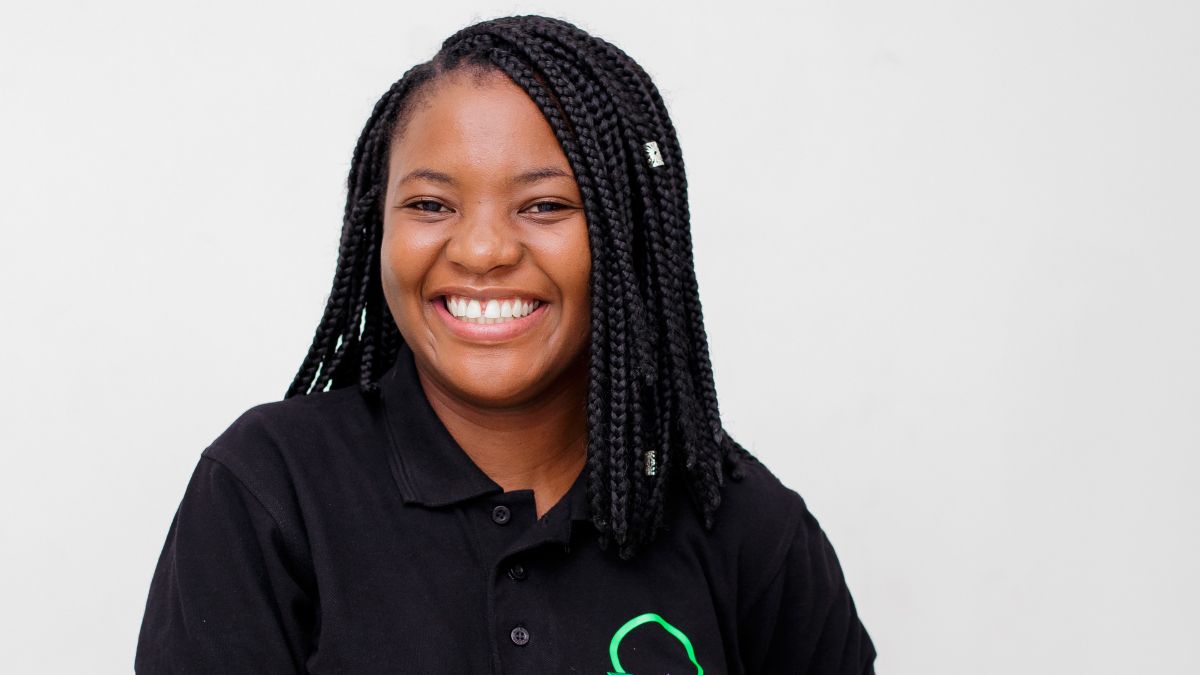
Cultural Warmth Fueling Climate Impact with Joy Hayley Munthali | S1 Ep 2
A key component of effective environmental education is working with the communities you're helping, even letting them lead. Joy Munthali, founder of Green Girls Platform, speaks to the process that has led to meaningful partnerships with communities, funders, and future educators.
Image
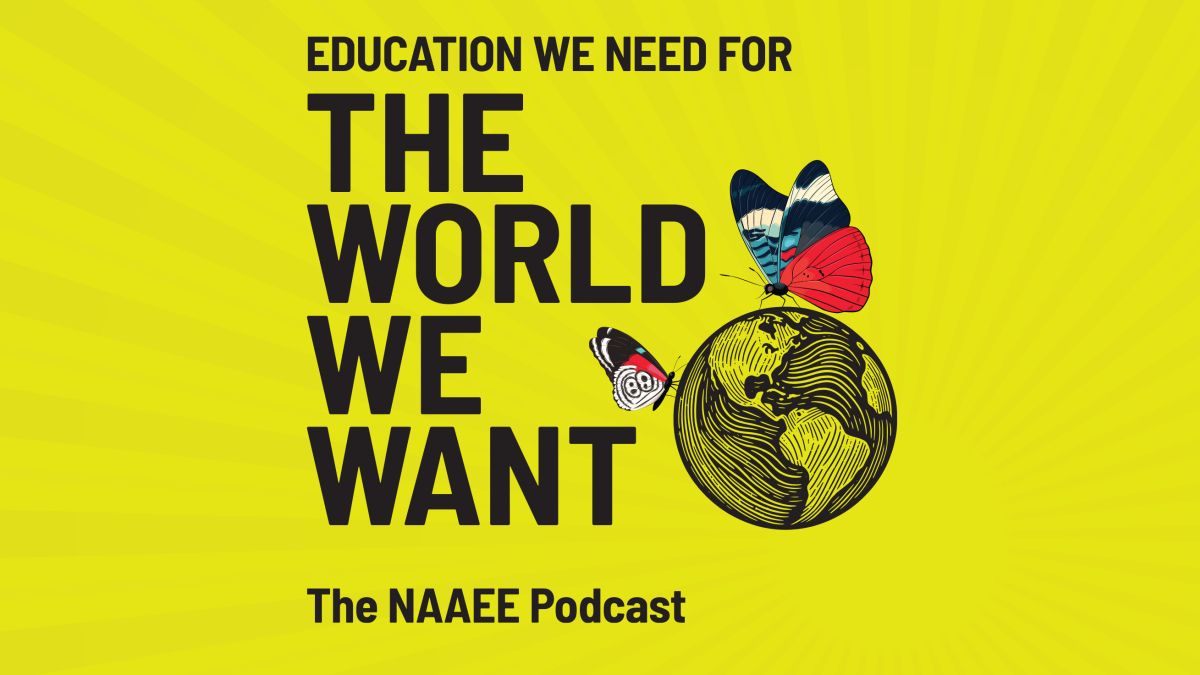
Imagine a world where communities thrive, curiosity sparks change, and hope fuels action. Welcome to The World We Want, the NAAEE podcast that's bringing a better future to life, one inspiring story at a time. Join us as we chat with people across continents and cultures who care about education and the environment—the trailblazers, visionary leaders, and everyday heroes making a difference.
Listen Now
Enjoyed This Episode?
Share your thoughts, takeaways, or resources you'd love to see featured by logging in or creating a free eePRO account.
